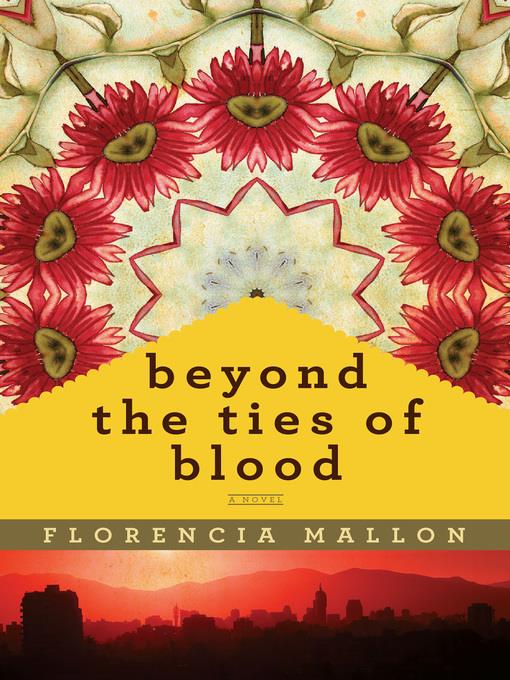
Beyond the Ties of Blood
A Novel
کتاب های مرتبط
- اطلاعات
- نقد و بررسی
- دیدگاه کاربران
نقد و بررسی

April 16, 2012
In Mallon’s debut novel, college student Eugenia Aldunate falls madly for Manuel Bronstein, a leftist rebel, during Pinochet’s brutal ascension in Chile. Manuel’s activism lands them both in prison, where they’re tortured, and where Eugenia learns that she’s pregnant. After her release, she flees to Mexico, where she raises her daughter, Laura, and becomes a human rights journalist. Years later, while Eugenia is on a teaching fellowship in Boston, Pinochet is deposed and Eugenia is asked to testify before Chile’s Truth Commission. Still haunted by the past, she returns to a family and country that have grown alien to her, and confronts the staggering losses that have made her alien to herself. Mallon conveys both the breathtakingly epic and heartbreakingly personal fallout of the bloody 1973 coup, successfully highlighting the sacrifices borne by generations of women and the small-scale moral dislocation of large-scale atrocity. But she also leans heavily on hackneyed conventions that flatten her extraordinary characters, rendering their relationships perfunctory and the plot progression mechanical. Eugenia, Laura, and Sara, all of them ostensibly strong, accomplished women, are buoyed more by emotion than conviction, a quality that elevates them as spiritual martyrs while diminishing their agency and authenticity. Agent: Lisa Grubka, Foundry Literary + Media.

July 1, 2012
Mallon's debut novel introduces Eugenia Aldunate, who survived the violence that struck Chile when Augusto Pinochet rose to power in 1973. Though tortured while in a prison camp, she avoids the fate of her rebel lover, Manuel. After his brutal murder, he joins the ranks of thousands of "disappeared," the distinctive legacy of Pinochet's ruthless reign. Mallon moves deftly between Eugenia's present life of exile in Boston, where she lives with her daughter, Laura, and a violent past that still haunts her. Old wounds reopen when Eugenia is called back to Chile to testify about her imprisonment and suffering. VERDICT The novel's pace falters occasionally; Eugenia's story can plod along, and, while interesting, a less developed plotline concerning Tonia, an indigenous Mapuche woman, sometimes disrupts the story's rhythm. However, Mallon excels at revealing the deep wounds that the dictatorship inflicted not just on its enemies, but on their loved ones--indeed, on the entire Chilean psyche. Mallon's novel also pays tribute to the tremendous, complicated powers of family and the comfort and solace they can sometimes provide.--Faye A. Chadwell, Oregon State Univ. Libs., Corvallis
Copyright 2012 Library Journal, LLC Used with permission.

May 15, 2012
Eugenia Aldunate keeps the scars on her arms covered, but an invitation to return to Chile and testify about her loss there after the coup of 1973 threatens to expose her in more ways than one. Mallon meditates on the legacy of blood, both the shattering impact of violence and the family ties that bind. The novel is only concerned with politics insofar as they affect people's lives, creating a more personal history. Aldunate's lover was one of the disappeared from the uprisings in Chile, and she was forced into exile. It is with the invitation to return that the main action of the novel begins. The author of three nonfiction books on Latin American history, Mallon constructs a narrative that streams through several characters' perspectives, rippling with their accounts of activism, family ties, romance, and the meaning of home. Her prose sometimes feels heavy-handed, but the power of her story carries the day, as characters struggle to come to terms with the truth, the past, and, above all, the legacy of blood.(Reprinted with permission of Booklist, copyright 2012, American Library Association.)

























دیدگاه کاربران